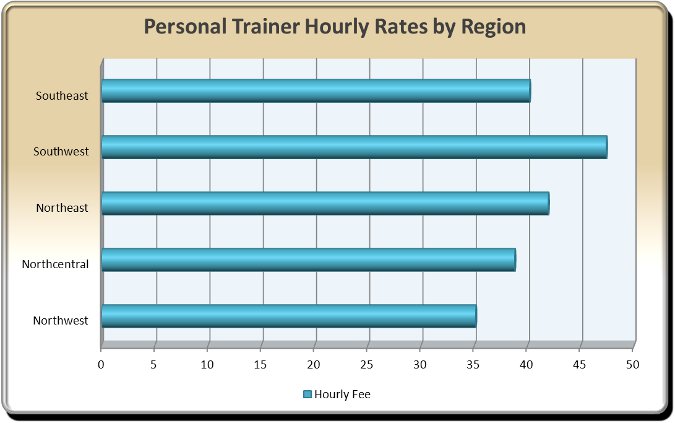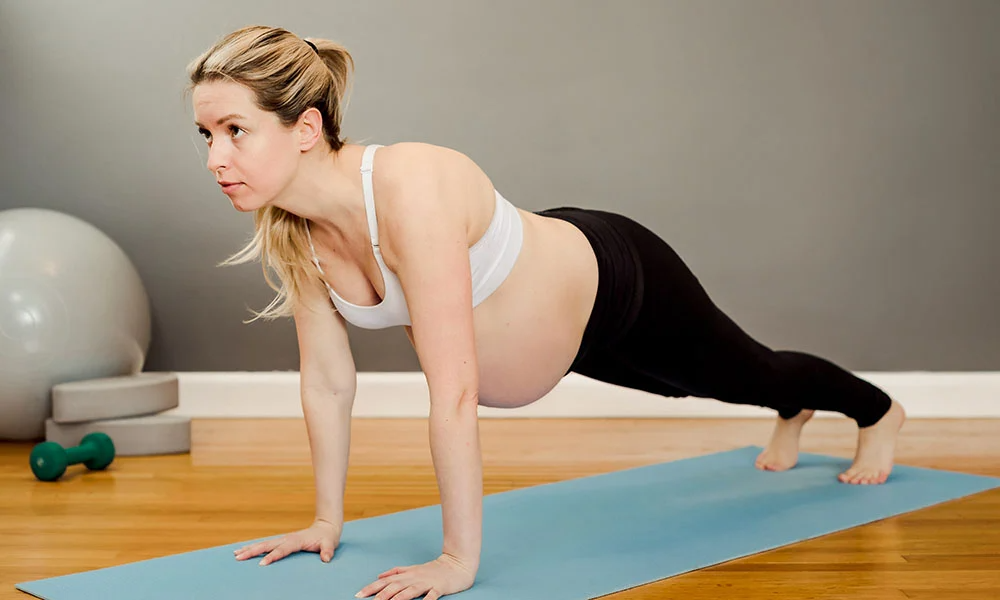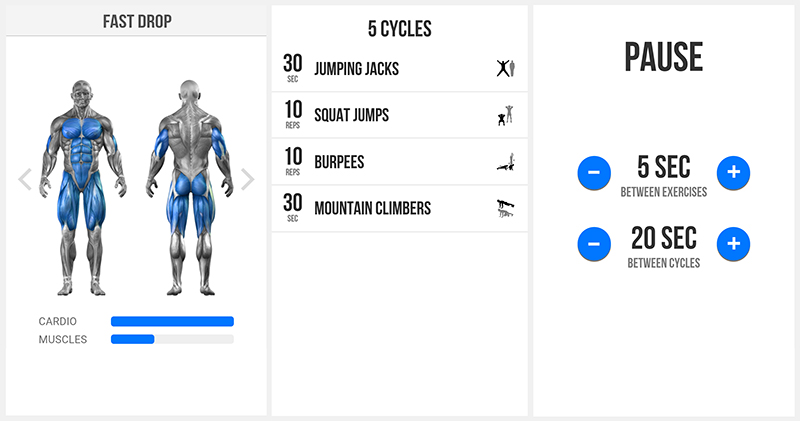
If you are thinking about a career as a Columbus, OH-based personal trainer, you might wonder what you would earn. You can start by looking at the average salary for personal trainers in the city. Additionally, consider the job opportunities for these trainers.
Average salary for a Columbus, OH personal trainer
Personal trainers in Columbus, OH earn an average salary of $58,107 per annum or $28 per hour. The range of salaries available is $42,070 - $69,670. The most common educational background for a personal trainer is a Bachelor's Degree. ERI compensation surveys determine the salaries for this job field. The cost of living data is derived from the commercially available data on housing and the effective income tax rates.
Personal trainers' salaries will vary depending on experience and geographic location. The salary of a certified personal trainer is higher than that of someone without certification. However, a personal trainer in Columbus, OH can earn much more than someone in another city if they work in a high demand area. For instance, trainers in high-end gyms and performance-based fitness centers typically have higher-paying clientele and make more money.

To become a Columbus certified personal trainer, you must complete a certification program. The program should also require you to evaluate client questionnaires and physiological data in order to determine the most appropriate fitness regimen for clients.
Your potential to earn as a personal coach in Columbus, OH
Personal trainers work with clients on improving their fitness levels. While some personal trainers work with professional athletes, others are more focused on non-athletes. The trainers create exercise programs and ensure proper equipment use. They develop relationships with clients and provide assessments on their fitness. Personal trainers in Columbus have many career options.
Columbus is a large metro area that has over 800k inhabitants. There are not many job opportunities in the larger cities. However there are many personal training positions that pay higher than average salaries. Ohio personal trainer salaries average $58,125 annually, which is lower than the national median of $61,800.
Those interested in working as personal trainers in Columbus should pursue post-secondary education. Employers won't hire personal trainers who are not certified. Candidates with national certifications are more likely to be hired.

There are many career opportunities as a personal coach
Personal trainers have many job options in Columbus. You can work at your own gym, consult with other trainers, or join a team. You can also focus on niche or marketing. These can be done remotely using messaging apps and live video streams.
A relevant college degree is preferred for personal trainers. This is due to the fact that it provides theoretical knowledge and solid foundations in fitness promotion. This area is offered by many universities and colleges. If you don't have the time, you can also enroll in online courses. Additionally, each personal training organization has its own requirements, so you should check to make sure you have what you need to meet their standards.
Dean is pursuing a Master's in Sport Coaching and Physical Activity from Ohio University after completing a Bachelor of Science degree. He enjoys sharing his passion for fitness with others and is passionate to help them understand proper nutrition. He is also a certified personal coach through the American Council on Exercise.
FAQ
Can I exercise after eating?
It depends on the type and intensity of your exercise. After meals, avoid strenuous physical activity because it could cause stomach cramps. Focus on light aerobic activities such as biking or brisk walking.
Are there any exercises I shouldn't do?
You should always consult with your doctor before starting any new workout routine. You might have injuries or conditions that make it impossible to do certain types of exercise. Also, some activities require special equipment or training. Swimming, for instance, requires both a swimsuit as well as access to the pool.
What is Cardio Exercises?
Cardiovascular exercises require your heart and lungs work harder than usual. Swimming, cycling, rowing, and jogging are all examples. These activities help you burn fat and increase your metabolism. These activities can help you keep fit and strengthen your heart.
Which Is more important? Exercise, diet, sleep?
It all depends on your goals. Weight loss is possible by following a healthy diet. However, if you want to gain muscle mass, then exercise is the most important factor for building muscles. Sleep is not as important as it seems, since it has no effect on how you perform throughout the day.
What does nutrition do to your body?
By providing all the nutrients necessary for growth and development, nutrition helps your body function well. A balanced diet that includes plenty of fruits, vegetables, lean protein, whole grains, healthy fats, and lean proteins is the best way to ensure you get adequate nutrition.
When I exercise, should I consume alcohol?
Drinking alcohol is high in calories so it's best to not consume too much while working out. However, moderate consumption of alcohol (one drink per day) may help improve endurance during workouts. It may reduce fatigue and muscle soreness from intense exercise.
Do I need to eat before working out?
No. No. If you feel hungry after working out, it is a good idea to have a light snack like yogurt or fruit.
Statistics
- Globally, 81% of adolescents aged 11-17 years were insufficiently physically active in 2016. (who.int)
- In high-income countries, 26% of men and 35% of women were insufficiently physically active, as compared to 12% of men and 24% of women in low-income countries. (who.int)
- Adolescent girls were less active than adolescent boys, with 85% vs. 78% not meeting WHO recommendations of at least 60 minutes of moderate to vigorous intensity physical activity per day. (who.int)
- In 2018, the World Health Assembly agreed on a global target to reduce physical inactivity by 15% by 2030 and align with the Sustainable Development Goals. (who.int)
External Links
How To
How to burn belly fat faster
Belly Fat is often considered a problem for those who want to lose weight. However, Belly Fat can be beneficial if you really think about it. It's the amount of fat stored around your stomach that protects your organs from getting damaged. So let's see how to burn belly fat fast.
The main factors that contribute to our body fat accumulation are stress and inactivity. Cortisol hormone is stimulated by stress, which causes us to feel constantly hungry. Cortisol raises insulin levels. The excess calories stored as fat are then stored by insulin. Lack of sleep causes the release of adrenaline into our system, leading to increased appetite. These extra calories can be broken down by exercising.
There are many methods to lose belly fat. You can try any one of them depending upon your budget. These tips will help you quickly get rid of belly fat.
-
You can eat less. Don't eat three large meals at once. You'll eat fewer calories this way.
-
Drink lots of water. Water flushes out toxins from your body and keeps you hydrated. Drinking water before meals will help you feel fuller for longer, so you don't overeat.
-
Avoid snack foods that are unhealthy. If you're looking for quick fixes, snack foods like chips, cookies, candies, etc. might seem tempting. Avoid these unhealthy treats. They are full of empty calories, too much sugar, and can be very fattening. Instead, choose healthy alternatives like fruits, veggies, nuts, seeds, and whole grains.
-
Strength training should be done at least three times per week. Strength training builds muscle mass and burns more calories when you're not working out. It strengthens bones muscles ligaments, tendons and the heart.
-
Walking or stretching is a good habit to do regularly. Stretching increases flexibility and mobility. It also reduces back pain. Walking is great for burning calories.
-
Reduce alcohol intake. You should cut down on alcohol consumption. It adds no nutritional value to your diet.
-
You can lose weight slowly. Your current weight is the first step to losing weight. Add 5%-10% of your total bodyweight to calculate your ideal size. Once you have calculated your target body weight, you can begin to cut calories by 500-1000 calories every day until your goal is reached.
-
Avoid processed foods. These foods are high-in salt, sugar, as well as preservatives. These processed foods are often convenient, but they lack enough nutrients for good health.
-
Don't skip breakfast! A good breakfast can improve concentration, memory, as well as energy level. Include protein (like eggs) and fiber, like oats, in your breakfast.
-
Have regular bowel movements. Constipation and irregularity cause bloating and gas. Drink plenty of water to prevent gas and fiber ingestion.